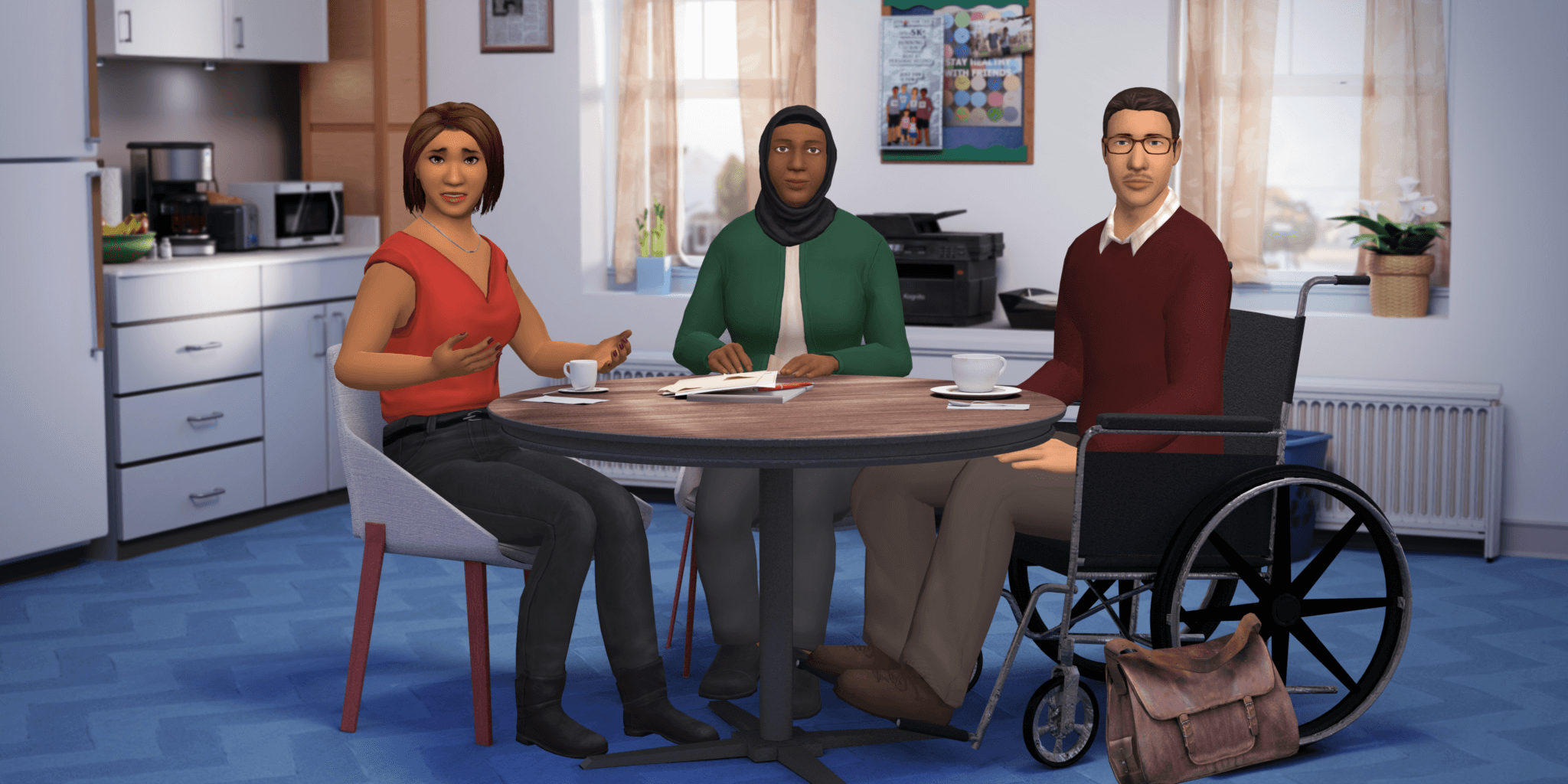Foster an Inclusive Campus Community with Role-Play Simulation
July is BIPOC Mental Health Month, formally recognized in 2008 as Bebe Moore Campbell National Minority Mental Health Awareness Month. This month is observed to bring awareness to the unique struggles that Black, Indigenous, and People of Color (BIPOC) communities face regarding mental health in the United States.
BIPOC communities are significantly more likely to develop mental health conditions. A major barrier in overcoming this inequity is access to treatment and the need for mental health support. Continue reading for more information on BIPOC mental health and how Kognito helps faculty gain the awareness, knowledge, and skills to engage across differences with integrity and empathy through our simulation-driven program Cultivating Inclusive Communities.
BIPOC mental health in college settings
Young adults are a high-risk population for developing mental health challenges. In fact, 20% of mental health diagnoses occur between the ages of 18 and 24. In addition to this, BIPOC student mental health concerns have been rising. Black American students are 20% more likely to experience mental health issues than the rest of the population; however, the likelihood of Black students being diagnosed with a mental health condition is significantly lower.
A recent study by Active Minds has seen an overall increase in mental health concerns in BIPOC students since the start of the pandemic. Multiracial students are more likely to meet the criteria for mental health issues compared to their white peers. Indigenous young adults also have the highest rate of suicide of any ethnic group.
BIPOC students have lower odds of seeking help for mental health concerns as a result of discrimination from healthcare providers, lack of available resources, and stigma associated with seeking help for mental health.
Faculty and staff are key facilitators for student mental health and well-being
Many colleges and universities have recognized the need for and importance of providing culturally responsive care to BIPOC students. Faculty and staff are recognized as key gatekeepers for students’ sense of belonging and connection to their university. Active Minds states that cultural competency training reduces the risks for misunderstandings, microaggressions, and bias. It’s important to better understand and effectively respond to the wide range of experiences held by individuals with diverse values, beliefs, sexual orientation as well as those with backgrounds that vary by race, ethnicity, and language.
Cultivating inclusive communities at your college or university
Kognito’s interactive role-play simulation, Cultivating Inclusive Communities, enables students, faculty, and other members of the college or university to have courageous conversations that foster an inclusive campus community. This program moves beyond definitions to offer users a safe environment to practice effective communication skills that create brave spaces, allowing for these conversations to take place.

Developed by academic professionals from Kognito’s Advisory Group for Inclusion and Belonging in Higher Education, Cultivating Inclusive Communities is designed to prepare college faculty and staff to lead conversations that contribute to a safe, supportive, respectful, and welcoming culture. In this simulation, you will learn the following:
- Evaluate diverse perspectives, navigating ambiguity and complexity
- Effectively build relationships across differences
- Recognize and critically reflect on personal beliefs, attitudes, and biases
- Demonstrate effective communication skills that create brave spaces
- Learn how to act as an advocate for the rights of others and self
- Recognize your role in fostering a caring and inclusive school climate
Experience the power of role-play conversations with virtual humans
For more information on bringing Cultivating Inclusive Communities to your college or university, contact us or request a demo today to experience the impact of role-play conversations with virtual humans.